Are your outdoor lighting projects plagued by floodlights that fail too soon? The costs of replacements and labor can quickly add up, hurting your bottom line and reputation.
The key to long-term durability is excellent thermal management. High-quality LED floodlights use superior materials, like die-cast aluminum, and well-designed heat sinks to draw heat away from the LED chip. This prevents overheating, which is the primary cause of premature failure and brightness loss.
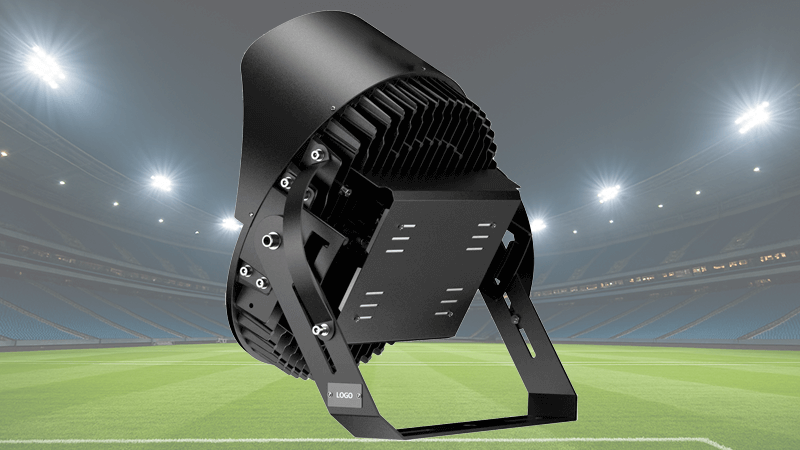
I’ve been in the LED lighting business for a long time, starting on the factory floor and building my own manufacturing company. If there’s one secret I’ve learned, it’s that heat is the number one enemy of LEDs. A light that can’t stay cool is a light that won’t last. For a purchasing manager like you, understanding this is the first step to sourcing products that deliver real long-term value.
To really get to the bottom of this, we need to look at a few specific questions that I get asked all the time. Let’s break it down so you can make smarter purchasing decisions.
What is the lifespan of an LED floodlight?
Tired of seeing "50,000 hours" on every spec sheet but having lights fail in a fraction of that time? It’s frustrating when marketing claims don’t match reality.
A quality LED floodlight can last between 30,000 and 100,000 hours. This wide range depends almost entirely on the quality of the LED driver, the LED chips, and most importantly, the effectiveness of the heat sink. Poor thermal management drastically shortens this lifespan.
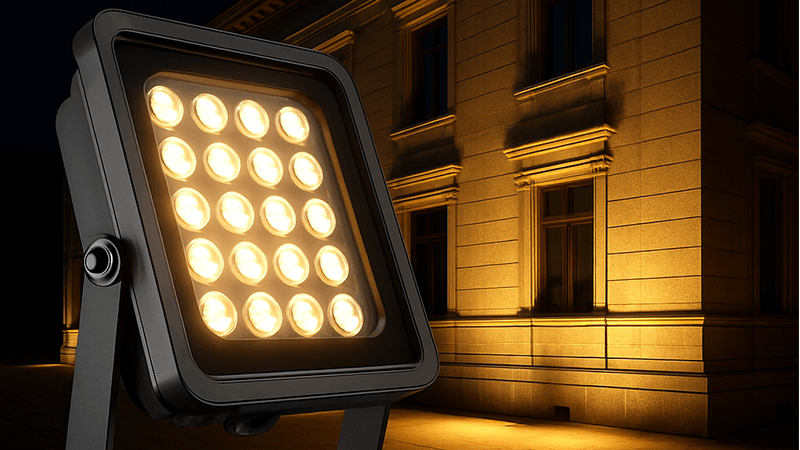
In the lighting industry, we often talk about "L70 lifespan." This is the point at which a light’s output has degraded to 70% of its initial brightness. It’s a more realistic measure than total failure. The factors that determine this lifespan are the critical components inside the fixture. I’ve seen countless cases where a fantastic LED chip was paired with a cheap driver or a poorly designed housing, leading to early failure. It’s a classic case of a chain being only as strong as its weakest link. You must evaluate the whole system, not just one part.
Key Factors Influencing Lifespan
| Component/Factor |
Impact on Lifespan |
What to Look For |
| LED Driver |
High Impact: The driver is the power supply. A low-quality driver can fail long before the LED chips, rendering the entire fixture useless. |
Reputable brands like Mean Well, Philips, or Sosen. Check for high efficiency and a good warranty. |
| LED Chips |
High Impact: The quality of the chip determines initial efficiency and how slowly it loses brightness (lumen depreciation). |
Top-tier brands such as Cree, Lumileds, Osram, or Nichia. |
| Thermal Management |
Critical Impact: This is the most important factor. Overheating rapidly accelerates chip degradation and can cause driver failure. |
A heavy, well-designed die-cast aluminum housing with ample heat sink fins. |
| Operating Environment |
Medium Impact: Running a floodlight in extremely hot climates without proper heat dissipation will shorten its life. |
Ensure the light is rated for the ambient temperature of your project location. |
How to improve the lifespan of high power LEDs?
Your high-power floodlights project powerful light, but are they dimming way too fast? You are investing in performance, and seeing that investment fade is a serious problem.
To improve the lifespan of high-power LEDs, you must focus on superior thermal management. Use fixtures made from die-cast aluminum with large, well-designed fins. This design effectively pulls heat away from the LED chip, keeping the junction temperature low and preventing rapid light decay.
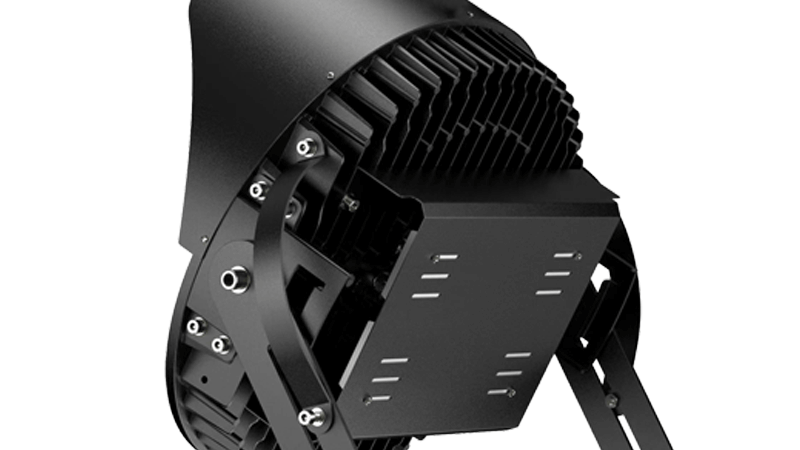
I cannot stress this enough: LEDs hate heat. The core of an LED, the "junction," is where light is created. If this junction gets too hot, the materials inside degrade quickly. This causes the light to dim permanently in a process we call lumen depreciation or light decay. I remember running tests in my early factory days where we compared two lights. One had a heavy aluminum body, the other a thin, stamped metal one. After just 1,000 hours, the light from the second unit was noticeably dimmer. The first one was still shining bright. The only difference was how well it handled heat.
The Role of the Housing Material
The body of the floodlight is not just a housing; it’s the engine of its cooling system. Die-cast aluminum is the best mainstream choice because it offers an excellent balance of properties. It’s strong, corrosion-resistant, and, most importantly, very good at conducting heat. Plastic or thin stamped aluminum simply cannot move heat away from the LED chip fast enough, especially in high-power applications.
Designing for Heat Dissipation
The design of the heat sink is just as important as the material. A good design maximizes the surface area exposed to the air.
- More Fins: More fins mean more surface area to release heat.
- Smart Design: The fins should allow for natural air convection, letting cool air flow in from the bottom and hot air rise out the top.
- The Touch Test: A simple, practical test I always teach my clients is the "touch test." Let the floodlight run for an hour. Then, carefully touch the housing. It should feel warm, but not painfully hot. If you can’t keep your hand on it for a few seconds, it’s running too hot. A surface temperature below 65°C is generally a sign of good thermal management.
What is the durability of LED lights?
Are your installed lights failing due to harsh weather, dust, or accidental impacts? A light’s lifespan on paper means nothing if it cannot survive in its real-world environment.
The durability of an LED light is determined by its construction and protective ratings. Look for high Ingress Protection (IP) ratings like IP65 or higher for weatherproofing, and Impact Protection (IK) ratings for physical toughness. The best materials, like die-cast aluminum, provide superior durability.
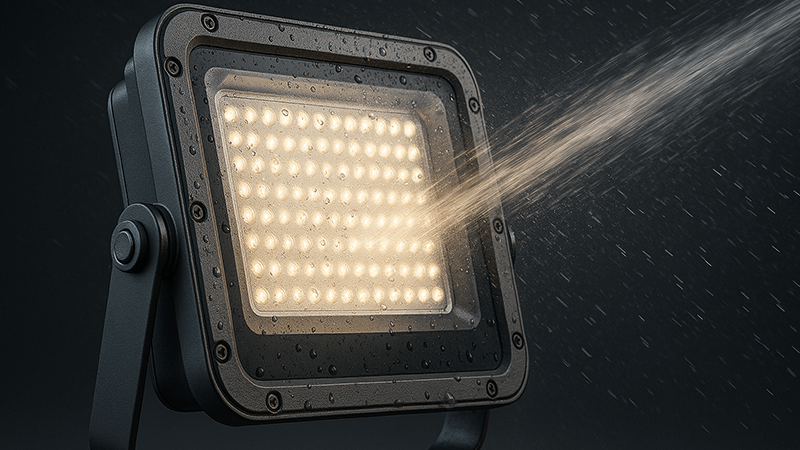
Durability is about more than just how long the light turns on. It’s about how well the fixture withstands the physical and environmental stresses of its location. A project near the coast needs protection from salt spray, while a light in a public area needs to resist vandalism. As a manufacturer, I focus on building fixtures that are tough from the inside out. This starts with a solid foundation—a robust housing— and includes every seal, screw, and lens. A purchasing manager like Shaz in the UAE needs to consider fixtures that can handle high heat, sand, and dust, making these ratings absolutely essential.
Understanding Durability Ratings
To specify durability, we use two key rating systems. Understanding them is crucial for sourcing the right product.
| Rating System |
What It Measures |
Example and Meaning |
| IP (Ingress Protection) |
Protection against the entry of solids (like dust) and liquids (like water). It’s a two-digit number. |
IP65: The first digit ‘6’ means it’s completely dust-tight. The second digit ‘5’ means it’s protected against jets of water from any direction. For outdoor use, IP65 is the minimum you should accept. IP66/IP67 offer even better protection. |
| IK (Impact Protection) |
Resistance to mechanical impact. It’s a rating from IK00 (no protection) to IK10 (protected against 20 joules of impact). |
IK08: This is a common and robust rating for commercial outdoor lighting. It means the fixture can withstand an impact of 5 joules, equivalent to dropping a 1.7 kg mass from a height of 300 mm onto the surface. |
Beyond the ratings, consider the fixture’s finish. A high-quality powder coating or marine-grade paint is essential for preventing corrosion, especially in coastal or industrial environments. A durable light is a system of strong materials and certified protection.
You want to make the best long-term investment for your project. With so many options, how do you identify the floodlights that will truly go the distance and provide lasting value?
The longest-lasting floodlights are those that combine a top-tier thermal management system with premium components. They feature robust, die-cast aluminum housings with extensive heat sinks, LED chips and drivers from world-class brands, and high IP and IK ratings for durability.
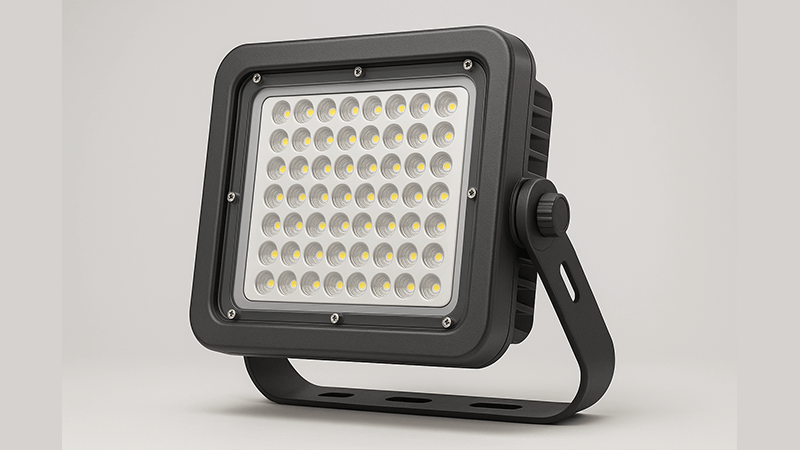
There is no single brand that is "the best." Instead, the longest-lasting light is one that is built with a philosophy of quality throughout. It’s about bringing all the elements we’ve discussed together into one high-performance package. When I work with project contractors, I guide them to look beyond the price tag and evaluate the fixture as a complete system. A slightly higher initial investment in a well-engineered light almost always results in a lower total cost of ownership. You save money on replacements, maintenance labor, and equipment rentals down the line. It’s the difference between buying a tool you’ll use for a year and one you’ll rely on for a decade.
Buyer’s Checklist for a Long-Lasting Floodlight
When you are sourcing products, use this checklist to separate the premium, long-lasting options from the rest.
| Feature |
What to Look For (Good) |
What to Look For (Best) |
| Housing Material |
Aluminum |
Heavy-duty, die-cast aluminum with a large surface area for fins. |
| LED Driver |
Reputable brand, >3 year warranty |
Mean Well, Philips, or Sosen driver; >5 year warranty. |
| LED Chips |
Tier 2 brand (e.g., Seoul Semi) |
Tier 1 brand (e.g., Lumileds, Cree, Osram). |
| IP Rating |
IP65 |
IP66 or IP67, especially for very wet or dusty locations. |
| IK Rating |
IK07 |
IK08 or higher, for public areas or industrial sites. |
| Lens/Cover |
Tempered Glass |
Impact-resistant Polycarbonate (PC) for higher IK rating. |
| Finish |
Standard powder coating |
Marine-grade powder coating or special anti-corrosion treatment. |
| Warranty |
3 Years |
5 to 10 Years. Reflects the manufacturer’s confidence. |
A product that checks all the boxes in the "Best" column is built to last. It’s engineered to manage heat effectively, withstand the elements, and perform reliably for years to come.
Conclusion
To ensure longevity, focus on quality components and superior thermal management. A floodlight that stays cool is a floodlight that will perform reliably for years, providing the best value.